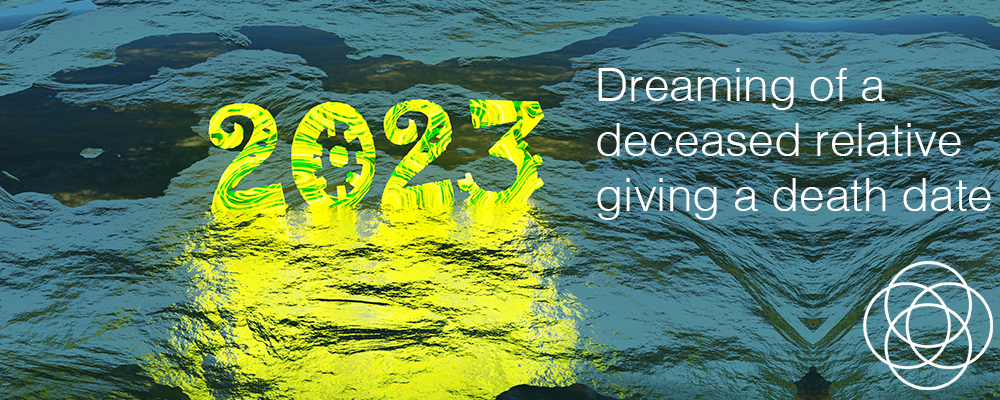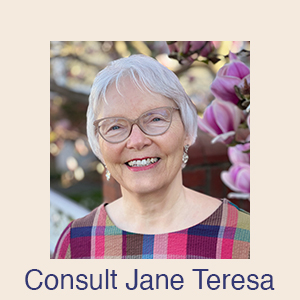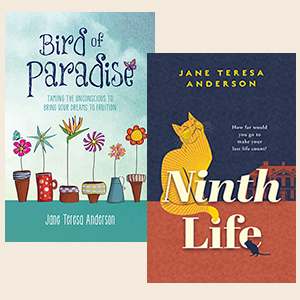“A dead relative came to me in a dream and gave me the date of my death, please help!”
Several times a year, people reach out to ask me this exact question. More often, people tell me about dreams where they’ve previewed their death date, or the age at which they will die, or the dateless scenario or location of their death. If you know my work well, you’ll know that all dreams are symbolic, and you’ll know that I am about to take you down that track, but I want to begin by emphasising the sheer anguish experienced by those who wake up from a dream where a dead relative delivered a death date.
We all know that some dreams feel more real than others, and dreams of meeting up with deceased family can seem extremely real because they are so highly emotional. We may long to meet up with someone we have lost, and dreams can make such encounters feel genuine, as if, in sleep, a portal opens between life on Earth and the Afterlife.
We may deeply fear meeting up with a deceased relative who caused us pain or discomfort when they were alive, and such a dream encounter can bring back high intensity emotions and unresolved issues that cause us to wake up in significant distress, believing we’ve had contact, through our dreams, with the deceased in spirit form.
It can be challenging for people to step back from these highly emotive dreams and look at them symbolically. But when I sit down with people to explore the symbolism of such dreams, we soon find more rational explanations that ring deeply true to them.
We may dream of death (or the deceased) when we are processing our fears, feelings, and perspectives about physical death, but most commonly our dreams about death reflect symbolic deaths: what’s coming to an end in our life (a relationship, attitude, phase of life, and so on), and how we feel about this. We can’t bring change into our lives without necessary endings.
We may dream of the deceased not because they are deceased, but because our dreaming minds pick them as perfect examples of whatever we are processing in our dreams. Aunt Sophie (deceased) might be the best example of a procrastinator from all the people you know – living or dead – to symbolise the pros and cons of procrastination. Your dreaming mind puts together an excellent rendition of Aunt Sophie based on your interactions with her when she was alive. Her lookalike enters your dream, the perfect character to play the part of yourself that is currently conflicted around procrastination.
So, let’s jump straight to the question of what it means when a death date is given in a dream.
Our dreaming minds play creatively with numbers. They might bring up the number 303 and, when you explore this, you remember that you used to catch the 303 bus, or you once lived at number 303, or someone close to you was born on 30th March (30.3), or a zillion other possibilities. The 303 in the dream will make perfect sense when you interpret the rest of your dream: for example, that 303 bus might bring back an emotional memory or conflict that fits with the issues your dream is exploring. It all falls into place.
Our dreaming minds are also very good at remembering dates that we have consciously forgotten. I have been endlessly impressed by this. I might work with someone on a dream and, just when we have all the puzzle pieces together, they look up a diary, or check with a relative, and discover that a date given in the dream relates to the issues. For example, someone might be processing a current conflict over whether or not to resign from a job, and their dream might bring up the date 7th June. They may then discover that 7th June several years ago was when they resigned from a previous job. Their dreaming mind draws parallels between the two situations, drawing the dreamer’s attention to what happened back then and how it may be influencing their choices, unconsciously, now.
Your dream might give you 9th October as your death date. What does October mean to you? Everyone’s answer will be different. You might think of October as the beginning of the university year in the northern hemisphere. You might then reflect back on when you first went to university, and see, quite clearly in hindsight, that the ‘old’ you died at that time, and the ‘new’ you was born. Your school days, your childhood, where you lived, how you saw yourself, all changed that October so many years ago. Your dream gave a death date of 9th October. What does 9 mean to you? Again, answers will vary. If you enjoy numerology, you might see 9 as the end of a cycle, and that would fit perfectly with 9th October being your dream symbol for the end of a cycle, a time to move forward in a new way.
Understanding dreams takes time and effort, and there are tools and techniques you can learn to help you to do this for yourself. Alternatively, you can seek help from a professional dream analyst.
If your death dream has come about because you are processing your fears about dying, or a newly-found sense of mortality, your dreaming mind might search for a date – any date – to symbolise finality. If the date given in your dream excludes a year, it has a 1:365 chance of being right through chance alone (whether you die this year or 75 years into the future). If you hear that someone died on the date predicted by their dream, think about all the people who didn’t die on the date given in their dream. My guess is that for every ‘accurate’ death date, there are some 364 ‘inaccurate’ death dates.
These dreams are common, very common.
Ask around, search the internet. You’ll find very few reports of ‘accurate’ death dates: read them with a pinch of salt, apply the 1:365 rule.
The death date given in your dream will most likely relate to a long-forgotten ‘ending’ date in your life, or even someone else’s death date that has been lodged in your conscious or unconscious memory: a relative, a famous poet, or more metaphorically, the fall of an empire, the deadline date you missed to apply for something important, the use-by date you barely noticed on that tub of yoghurt you ate last night.
Perhaps your dream death date included a year. Begin by looking at the number symbolically: the year 2035 might be drawing your attention to what happened in your life between the ages of 20 and 35, or your expectations of what life holds for you when you reach the age of 35. For example, you might see 35 as marking the end of an era, the death of youth, the beginning of middle age.
What about being given a death age in your dream?
You might dream that you will die at 55, or in ten years’ time. Again, explore these numbers or ages symbolically, or explore how they might relate to your beliefs and perspectives. Do you worry that you might not be on top of your game in your career by the time you reach the age of 55? Did a parent or colleague die at that age? Where do you imagine you’ll be in ten years’ time, and why might your dreaming mind see nothing but endings? What new approach might you be ready to begin in ten years? What opportunities might you miss if you wait another ten years?
During dreaming we can become more acutely aware of physical ailments. A dream may pick up on changing hormone levels around perimenopause (or dropping testosterone levels in men), signalling these changes as symbolic deaths. A dream might predict a death date of age 55 – or five years’ time – as prediction of menopause based on fluctuating hormone levels and your knowledge and beliefs about menopause: death of fertility, birth of a new way of being.
A dream might, rarely, pick up on other physical changes of which you are consciously unaware: a heart murmur, weakening bone density, a tumour, and may play this dramatically as a death date. Think of this more as a dramatic way for your unconscious mind to draw you attention to a physical change. Put your mind at rest by organising a medical check, then return to explore your dream symbolically.
I once dreamed that my deceased father came to escort me to the Afterlife. My time on Earth was done. In the dream I was warmed to see him, but I told him I was not ready to go. Outside, I saw a deceased aunt waiting by the door. Everything about the dream was true to life: the house was exactly the house I lived in, there was nothing surreal or out of place other than the presence of my father and aunt.
On waking I was momentarily distressed. I am a dream analyst, I understand these dreams, this dream felt too true to life and emotionally intense. But once I was fully awake, I was able to see a waking life parallel: I was contemplating making a change, perhaps stepping away from the work that I do, beginning something new. I was conflicted: was it time to step away or did I want to stay? There were pros and cons either way. When I thought about my aunt (my dreaming mind might have chosen from any number of my deceased aunts, but it chose this one), I realised she symbolised a key perspective. The dream helped me to understand the layers of my conflict and decide on my next steps. As you will note, I am still here, on this Earth, and my dream was long ago.
My blogs are usually much shorter than this. I have written this one as a resource for people who email me, terrified, to ask my opinion about dreams where a deceased relative gives a death date. You may be one of those people. I hope this article has helped to reassure you that your death date dream is symbolic, and I hope it has helped you to understand a little more about your dream.
You might also enjoy



